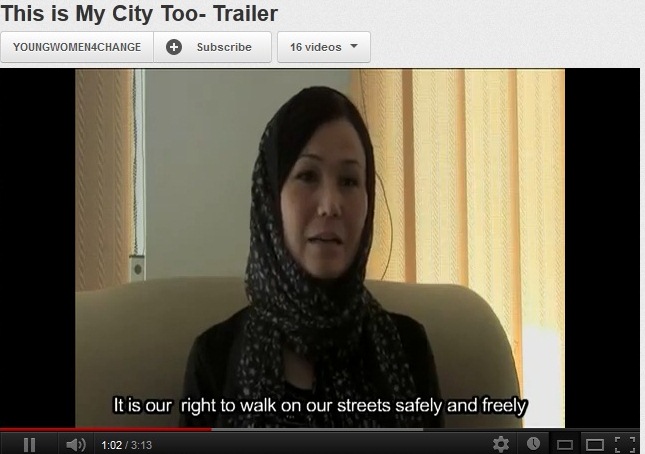This article excerpt is cross-posted with permission from the blog Organica: The Story of an Arab American Girl.
I am writing about my everyday experiences as a single woman living in Cairo, Egypt. I travel independently, run my own life and refuse to allow harassment or male behavior hinder my life. I am writing about the price I pay for braving the road, the protests, the streets, and the sit-ins. I am writing about how my feminism feels helpless and often afraid.
Here it goes: my name is Hana and I am an empowered victim.
When I lived in the United States between 2006 and 2011, I used to dream about the day I’d move back to Egypt so that I could yell and shame every man who sexually harassed me on the street. I thought it would feel empowering. I was wrong. Not only is it extremely draining and tedious, it quite often takes a scary turn. Sexual harassers thrive on getting a rise out of their prey.
This is not an article on sexual harassment, but a glimpse of my life.
On the Road:
Everyday my mother looks at me with terror: ‘khali balak men nafsik winabi ya benti’ [take care of yourself my daughter] before I leave the house, and my response is ‘Mami haye7sali eh ya3ni? Mate2la2eesh’ [Mom, what do you think could possibly happen to me anyways? Stop worrying!]. But in reality, I’m wrong and she’s right. She should be worried for my safety. I am often instructed to reconsider my outfits when I am driving alone and I argue that I am not going to let men affect my choices.
The driver-to-driver harassment is rampant in Cairo. One time while in stagnant 6th of October bridge traffic, I was texting on my phone (traffic was at a complete standstill).
The driver in the car next to mine said: “I hope this phone falls on the car mat, so that you may bend down to get it, and I’d drive into you, ya know what I mean?”
I yelled “balash elit adab w 2araf’ [I don’t want disrespect and disgust], which he responded “ba2a keda?” [Like that, eh?] – And then he followed me to my house all while making further obscene comments.
There was nothing I could do to protect myself from this bully – I was helpless.
Protests:
I moved back to Egypt on July 5th. On July 8th there was a million man march and the beginning of a sit-in. That Friday was my first ever protest in Egypt. I dressed appropriately and took to the streets with immeasurable excitement. Given that I moved back to Egypt for the revolution, I thought nothing could taint my first experience in a protest – I was wrong.
A man approached with his three friends and asked about the color of my bra – apparently he preferred white ones. I yelled and said that I would scream if he said anything which made him and his friends laugh loudly – at me – declaring that I am crazy but a ‘hottie,’ and a crazy-hottie combo would be great in bed. I pulled out my pepper spray but it failed to reach my monsters.
The day continued along the same lines, I got groped several times, one of which was actually from the front (I did not know that was even possible), and another by a 12 year old CHILD who I caught and yelled at. I was scared and felt vulnerable although equipped with my knife and pepper spray. There was nothing I could do and it felt awful.
The Streets:
There is no ‘that street’ story because there are countless street stories. They all revolve around the same thing: being verbally and quite often physically assaulted by men. Forget the catcalls, and the comments (I was once told that I am attractive, but would be much more attractive if I lost some weight), but the physical harassment is unbearable.
My street story is by no means special. I was walking home, turning at a corner, when a man’s hand came out of a car window and groped me (it was painful). The car had 4 or 5 guys and I could hear them laugh at my humiliation. I continued walking, feeling disgusted when the car appeared again, and one of the guys in the car so kindly suggested that it was obvious that I wanted to get groped again.
Yeah, that felt awful too.
…
Reality:
The worst thing that I face as a woman who refuses to let such actions hinder or inhibit her is the feeling of helplessness. I am a feminist, yet I am a victim. I know for a fact yelling back or even screaming at harassers is effective, some do actually apologize when shamed, but I also know that NOTHING will stop these men except actual punishment. I am a woman who never uses the metro, microbuses, buses and I rarely use taxis, yet I face this much harassment. I can only imagine what the women who do use public transportation face on a daily basis. I presume I’d have to multiply my experiences by a hundred.
I do not pray often, but I pray that the day comes when I feel safe walking the streets of Egypt; I walk them now anyway, but I feel weak, vulnerable and helpless and it feels awful.




